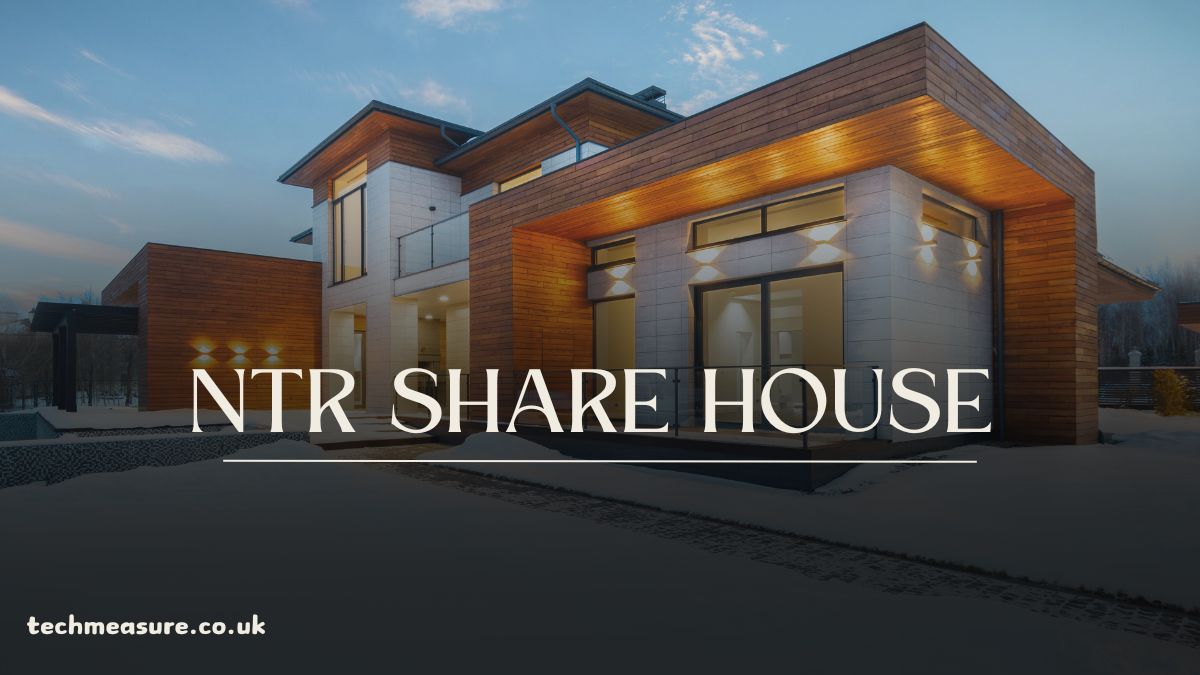Introduction
Shared housing has become a vital part of modern urban living, providing cost-effective solutions and fostering community connections. One concept that stands out in this trend is the NTR Share House. But what exactly is an NTR Share House, and why is it gaining popularity?
What is NTR Share House?
An NTR Share House is a type of communal living arrangement where multiple individuals or families share a single residence. This concept originated as a response to rising housing costs and the need for more flexible living arrangements. The NTR Share House model focuses on creating a supportive community environment while sharing expenses and resources.
Benefits of NTR Share House
Cost-effective Living
One of the primary advantages of living in an NTR Share House is the reduction in living costs. By sharing rent, utilities, and other expenses, residents can save a significant amount of money compared to living alone.
Community and Networking Opportunities
Living with others in a shared house fosters a sense of community. Residents often form close bonds, providing social support and networking opportunities that can be beneficial both personally and professionally.
Shared Resources and Responsibilities
In an NTR Share House, household responsibilities such as cleaning, cooking, and maintenance are shared among residents. This distribution of tasks not only makes life easier but also promotes a cooperative living environment.
How Does NTR Share House Work?
Membership and Eligibility
To join an NTR Share House, individuals typically need to meet certain eligibility criteria, which may include age, profession, or lifestyle preferences. This ensures compatibility among residents.
Application Process
The application process for an NTR Share House usually involves filling out a form, attending an interview, and possibly visiting the house. This helps both the applicant and the current residents determine if it’s a good fit.
House Rules and Guidelines
Each NTR Share House operates under a set of rules and guidelines to ensure smooth functioning. These may cover aspects like guest policies, noise levels, and communal responsibilities.
Types of NTR Share Houses
Family-oriented Share Houses: These houses are designed for families, providing larger living spaces and amenities suitable for children and family activities.
Student Share Houses: Student share houses are geared towards college and university students, offering a conducive environment for studying and socializing.
Professional Share Houses: Professional share houses cater to working individuals, often located near business districts to reduce commute times and facilitate networking among residents.
Living in an NTR Share House
Day-to-day Life
Daily life in an NTR Share House involves a balance of personal and communal activities. Residents typically share meals, participate in house meetings, and collaborate on household tasks.
Social Activities and Events
Many NTR Share Houses organize social events, such as movie nights, group dinners, and outings. These activities help strengthen the bonds among residents.
Conflict Resolution and Communication
Effective communication is key to resolving conflicts in a shared living environment. Regular house meetings and open discussions help address issues before they escalate.
Financial Aspects
Rent and Utility Costs
Rent and utility costs are divided among residents, making it more affordable for each individual. This cost-sharing model is one of the main attractions of NTR Share House.
Shared Expenses and Budgeting
Residents often contribute to a common fund for shared expenses like groceries and household supplies. Budgeting together ensures that everyone’s needs are met without overspending.
Financial Assistance and Scholarships
Some NTR Share Houses offer financial assistance or scholarships to help lower-income residents afford their stay. This inclusivity enhances the community spirit.
Challenges and Solutions
Privacy Concerns
Living in close quarters with others can sometimes compromise privacy. Setting clear boundaries and respecting each other’s personal space is essential.
Compatibility Issues
Not all residents may get along perfectly. Addressing compatibility issues through honest communication and house meetings can help maintain harmony.
Maintaining Cleanliness and Order
Keeping a shared house clean requires cooperation. Establishing a cleaning rota and ensuring everyone follows it can help maintain a tidy environment.
Success Stories
Many residents have found NTR Share Houses to be life-changing. Testimonials highlight the supportive community, financial savings, and personal growth experienced through shared living.
How to Choose the Right NTR Share House
Factors to Consider
When choosing an NTR Share House, consider factors like location, house size, resident demographics, and amenities.
Questions to Ask During a Visit
Ask about the house rules, responsibilities, and what’s included in the rent. Meeting potential housemates can also give you a feel for the house dynamics.
Red Flags to Watch Out For
Be wary of houses with unclear rules, high turnover rates, or residents who seem unhappy. These could indicate underlying issues.
NTR Share House vs. Traditional Housing
Cost Comparison
NTR Share Houses typically offer a more affordable living option compared to traditional housing, especially in urban areas with high rent prices.
Lifestyle Differences
Shared housing promotes a communal lifestyle, which can be a significant change from living alone. This lifestyle fosters social interactions and shared experiences.
Pros and Cons
While NTR Share Houses offer many benefits, they may not be suitable for everyone. Consider your personal preferences and lifestyle before making a decision.
The Future of Shared Housing
Trends and Innovations
The concept of shared housing is evolving, with new models and technologies enhancing the living experience. From co-living spaces to smart home features, the future looks promising.
Potential Growth and Expansion
As housing costs continue to rise, the demand for affordable living options like NTR Share Houses is expected to grow. This expansion will likely bring more variety and options for residents.
Sustainability and Eco-friendly Practices
Many NTR Share Houses are adopting eco-friendly practices, such as recycling programs and energy-efficient appliances, contributing to a more sustainable future.
Tips for a Positive Experience
Building Good Relationships: Fostering good relationships with housemates is crucial. Be respectful, communicate openly, and participate in house activities.
Effective Communication Strategies: Clear and respectful communication can prevent misunderstandings and conflicts. Regular house meetings and one-on-one conversations are effective ways to communicate.
Balancing Personal and Communal Life: Finding a balance between personal time and communal activities is important. Respect others’ privacy while being an active member of the community.
Legal and Safety Considerations
Tenant Rights and Responsibilities: Understand your rights and responsibilities as a tenant in an NTR Share House. This includes knowing the terms of your lease and the house rules.
Safety Protocols and Measures: Ensure that the house has adequate safety measures in place, such as fire alarms, secure locks, and emergency contacts.
Legal Agreements and Contracts: Read and understand any legal agreements or contracts before moving in. This helps protect your rights and sets clear expectations.
Conclusion
NTR Share House offers a unique and cost-effective living arrangement that promotes community and shared responsibility. While there are challenges, the benefits often outweigh them, making it a viable option for many individuals seeking affordable and supportive housing.



